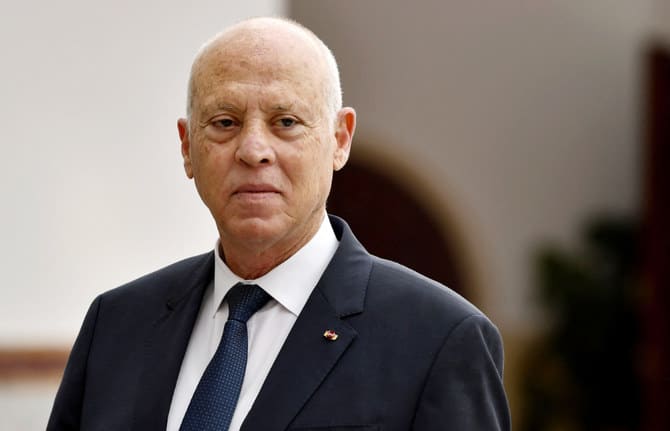Tunisia’s foreign ministry summoned the US charge d’affaires on Friday to denounce “unacceptable” statements by American officials criticising this week’s constitutional referendum and the country’s political development.
The ministry said in a statement that it had called Natasha Franceschi, currently the top official at the US embassy, to its headquarters over recent remarks by Secretary of State Antony Blinken and American ambassadorial nominee Joey Hood.
In the statement, foreign minister Othman Jerandi slammed the “unacceptable interference in internal national affairs” and expressed “amazement” at the US officials’ criticism, which he said did not “at all reflect the reality of the situation in Tunisia”.
A few hours earlier, Jerandi had met with President Kais Saied, who expressed his “rejection of any form of interference in the internal affairs of the country”.
Saied was referring to statements, mainly from US officials, criticising the recent referendum on a new constitution, which was approved Monday by nearly 95 percent of voters, albeit with a turnout of just 30.5 percent.
The new constitution grants almost unlimited power to the president, and Saied’s rivals had called for a boycott of the vote.
Blinken on Thursday voiced concerns that the “new constitution could weaken Tunisia’s democracy and erode respect for human rights and fundamental freedoms”.
Noting the low turnout, he added: “An inclusive and transparent reform process is crucial going forward to begin to restore the confidence of the millions of Tunisians who either did not participate in the referendum or opposed the new constitution.”
Hood, meanwhile, told the Senate Foreign Affairs Committee in a hearing on Wednesday that Tunisia had recently “experienced an alarming erosion of democratic norms and fundamental freedoms”.
“President Kais Saied’s actions over the past year to suspend democratic governance and consolidate executive power have raised serious questions,” he added.
The US has been increasingly critical of Saied, who dissolved parliament and seized control of the judiciary and the electoral commission on July 25 last year, arguing the country was ungovernable.







